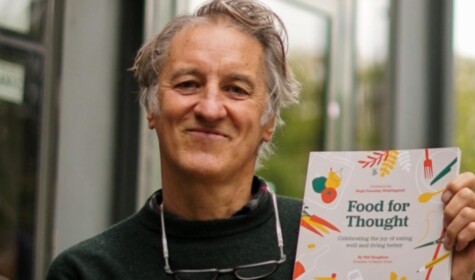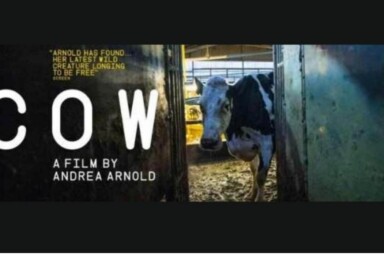Phil Haughton is an old friend of mine, best known as the founder of three Bristol food shops flying under the banner of The Better Food Company. I wanted to say a few words about his book, Food for Thought, which ‘celebrates the joy of eating well and living better’.
I much admire the man and all his achievements, particularly in Bristol, where he virtually pioneered the concept of a wholly organic food shop, but also because I knew that amongst his formative influences was a period when he lived in a commune in southwest Scotland.
The Haughton family are something of a Bristol dynasty and it has been my very good fortune to make the better acquaintance of two or three of them, notably Barny, MBE (services to Bristol) who established the Square Food Foundation and before that ran several amazing restaurants. I also know his sister Liz and his brother Luke, who made a beautiful kitchen for the Sustainable Food Trust’s base in Totterdown, which is still giving good service some 28 years later!
‘Food for Thought’ is a delightful combination of short essays and interviews, which include stories about his past and thoughts about many of the key food and farming challenges of our time, illuminated with evocative pictures and recipes. It is an easy read, and one which doesn’t disappoint, resuscitating memories, which I share with Phil, of living in communes in the early 1970s.
His version, Lothlorien, was a smallholding in Dumfries and Galloway. The descriptions of the times shared together during a few golden years, which he admits were punctuated with the stresses and strains which inevitably accompanied communal living, are absolutely enchanting, particularly the pictures! There is something about pictures of those back to the land experiments in the 1970s which convey an atmosphere which, for anyone who shared those experiences would testify was truly life enhancing!
The reason why you should read this book is because it provides a special glimpse of the influences which shaped a man who has been a leader in the sustainable food movement. Most of these experiences are still available today, if we make the effort to get back to the land and reintegrate real food production and contact with nature into the core of our lives.







